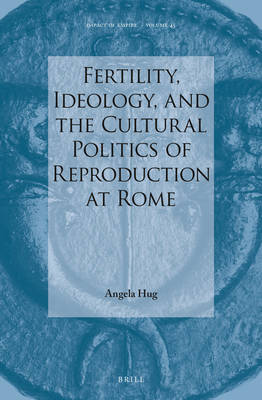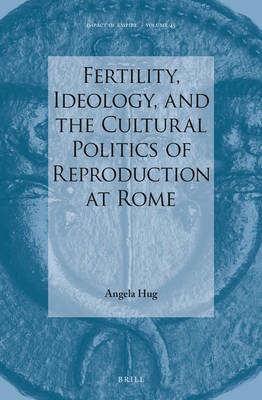
- Afhalen na 1 uur in een winkel met voorraad
- Gratis thuislevering in België vanaf € 30
- Ruim aanbod met 7 miljoen producten
- Afhalen na 1 uur in een winkel met voorraad
- Gratis thuislevering in België vanaf € 30
- Ruim aanbod met 7 miljoen producten
Zoeken
Fertility, Ideology, and the Cultural Politics of Reproduction at Rome
Angela Hug
€ 227,95
+ 455 punten
Omschrijving
The first comprehensive study of the importance of fecunditas (human fertility) in Roman society, c. 100 BC - AD 300, this book makes a major contribution to our understanding of the connections between fertility, the Roman family, and the Roman state.
Specificaties
Betrokkenen
- Auteur(s):
- Uitgeverij:
Inhoud
- Aantal bladzijden:
- 328
- Taal:
- Engels
- Reeks:
- Reeksnummer:
- nr. 45
Eigenschappen
- Productcode (EAN):
- 9789004540774
- Verschijningsdatum:
- 18/05/2023
- Uitvoering:
- Hardcover
- Formaat:
- Genaaid
- Afmetingen:
- 154 mm x 238 mm
- Gewicht:
- 612 g

Alleen bij Standaard Boekhandel
+ 455 punten op je klantenkaart van Standaard Boekhandel
Beoordelingen
We publiceren alleen reviews die voldoen aan de voorwaarden voor reviews. Bekijk onze voorwaarden voor reviews.








